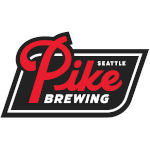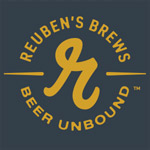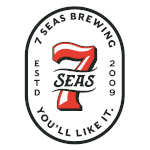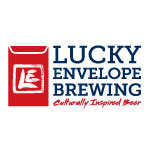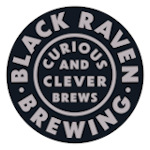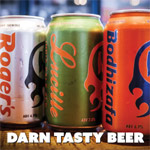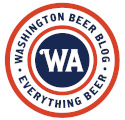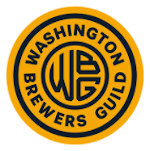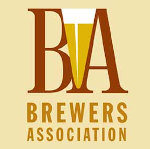Twenty years ago, craft beer consumers were a tiny subset of the country’s beer drinkers and an even tinier subset of the population overall. Because our hoppy hobby was so niche, it probably didn’t matter that we were not a very good representation of the whole of American society. Since then, a lot has changed and craft beer is now mainstream by comparison. It is no longer a private club with a secret handshake, but some things have not changed: the world of craft beer still lacks diversity and remains very white.
In a nation with over 8,000 breweries, less than 70 are black-owned. Of Washington’s 400-plus breweries, only one is black-owned, Métier Brewing in Woodinville (above: Rodney Hines, owner of Métier Brewing, picture from Facebook). The Brewers Association reports that about 90 percent of the people working on the production side of the craft beer industry are white. (An even higher percentage is male. Different subject.) Attend any beer festival and you’ll see a crowd that does not reflect the racial diversity of our community. Visit any beer-focused bar around Washington and you’ll see the same.
To overstate the obvious, the lack of racial diversity in the craft beer world is stunning. In the beer world and the real world, issues of racial inequity and racial justice have been at the top of a lot of minds lately. Personally, I do not want to waste this moment in time. I want the conversation, and the action, to continue.
I should point out that the Sightglass podcast, which is produced by Reuben’s Brews, recently did an episode on this topic. It involves some of the people mentioned here and speaks to these issues very well. I highly recommend listening to it. https://sightglass.simplecast.com/.
I would also point you to our recent post about the Black Is Beautiful beer initiative. There are currently well over 1,000 breweries involved. I encourage everyone to support that initiative.
Watch this space! Just announced today by Garrett Oliver (longtime brewmaster at Brooklyn Brewing and a renowned beer author). “Today I am pleased to announce the formation of the Michael Jackson Foundation for Brewing and Distilling (MJF). The MJF will fund scholarship awards to predominantly people of color within the brewing and distilling industries or who wish to join those industries.”
Local Voices
I recently asked two people of color who work in the local craft beer industry for some perspective. In very general terms, I asked for comments about being black in the beer business and being black in America. Below, I share their thoughts. Since there are so few people of color in the industry, I thought it valuable for us to hear their voices.
Larry Rock currently works in sales for Reuben’s Brews in Seattle, but his career in the craft beer industry spans more than three decades. “Back in the 1990s, I was in Ballard making a sales call when an officer came into the bar and looked at me and asked to see my ID. I asked him what the problem was. He said there was a report of a black male arguing with a white woman up the street.”
“The pub owner immediately jumped in a said that he definitely had the wrong guy. I told him that I was out doing my job but he still insisted on seeing my ID. I asked him if I was the only black person in the neighborhood to which he said he didn’t know. The pub owner, a white guy, became more upset than I was. He lit into the officer and with that, he left. I never showed my license or raised my voice but it felt like a breath of fresh air to see a white dude in 1998 take that stance.”
“I have the extreme fortune of only being hassled a couple of times in the last 15-20 years,” says Larry. “My concern now is for my sons, who are 27 and 30 years old. I worry way more about them than I worry about myself.”
On the beer side, Larry says that he hasn’t experienced blatant racism but says that he’s seen enough racial neutrality to last a lifetime. “Being the only black person in a packed pub for a promo night or being able to count the number of black people at a beer fest on one or two hands is what I have experienced over the years and that has been more disheartening than anything.”
Dreux Dillingham, General Manager at Métier Brewing, agrees that racism in the industry isn’t usually blatant. “Racism is rarely aggressive and confrontational,” he says. “A lot of the fatigue we feel as people of color is the constancy and frequency of minor aggressions, slights, and lack of inclusivity.”
In his personal, non-professional life, Dreux says he’s experienced his share of racial profiling and stereotyping. “Unfortunately my experiences with law enforcement, regardless of where I’ve lived, have not been good. Growing up in my Midwest hometown, I experienced being illegally detained for looking “suspicious” on a late-night walk home.”
Dreux has other stories to tell. Like the time he was pulled over on his way home from the grocery store for going 33 MPH in 30 MPH zone and, despite his explanation about where he’d been and his obvious carload of groceries, had to prove that he was not drunk.
On a professional level, before joining the team at Métier Brewing, the only black-owned brewery in Washington, Dreux worked in the wine industry, another staggeringly white environment. He explains that the kind of subtle discrimination that he’s experienced is all too common.
“I am a graduate of Walla Walla Community College’s winemaking program and we had an outstandingly talented group of people in our class,” explains Dreux. “Within one year of graduation, a handful of white graduates had been named Head Winemaker. Within three years an even greater number were given the keys to multi-million-dollar companies. Yet in my 15 years of production, I have never held a position higher than Assistant Winemaker. This is despite my track record of producing award-winning wines at every stop. The only Head Winemaker position I have ever been offered came from a small winery in British Columbia.”
“The lack of visibility, recognition, and inclusion from my colleagues, peers, and critics is a big reason I decided to leave the wine industry for a time,” he says. “When the owner of Métier Brewing, Rodney Hines, approached me about joining the team as the General Manager, it felt as if I’d been waiting for him, and for this leadership opportunity, my entire career.”
Can We Affect Change?
I admit that I am guilty. For a long time, I’ve used excuses to remain silent. As a white man in the beer industry, I declared myself the wrong person to complain about how the industry is dominated by white men. That’s a total cop-out. I admit it. This forum and others give me a voice and I should be using it.
Personally, I am unhappy with the lack of diversity in the beer world and find it disheartening and embarrassing. If you have no ethical issues with it, then think about it from a commercial standpoint. If craft beer is ever to realize its true potential it must foster diversity. It must attract and welcome people of all colors and ethnic backgrounds.
Everyone I’ve spoken to in the craft beer industry recognizes that things need to change. Everyone I talk to wants to increase racial diversity and promote a greater sense of inclusivity. Talk is one thing, but is anyone actually doing anything to make it happen?
Yes, as a matter of fact, they are. Multiple brewery owners that I’ve spoken with recently told me that they have implemented, or are actively planning to implement, programs that will foster and promote racial diversity at their businesses. I sincerely hope to have more news to share about their initiatives soon.
One example, Aslan Brewing in Bellingham recently sent out an announcement about its renewed commitment to “taking small, but frequent, steps that will continue to move us into a positive direction in regards to Diversity, Equity, and Inclusion (DEI) in both the workplace and the community at large.” They’ve updated the company’s mission statement, changed hiring practices, created a DEI committee, and taken other steps in the right direction.
Reuben’s Brews, Fremont Brewing, and others have told me that they are pursuing similar programs to help foster greater diversity in the brewhouse and across the business. If the industry is going to change, it needs to happen from within, but as individuals, as beer drinkers, we can help.
“My experiences have made me passionate about using Métier Brewing as a vehicle of change to create other opportunities for men and women who look like me, which is why we will be announcing an internship program later this year dedicated to providing the support, exposure, and instruction about the service industry that our underrepresented groups need to be successful.”
Want to help Métier Brewing’s efforts to build this program? Drink some of their award-winning Black Stripe Coconut Porter. A portion of the proceeds from the sale of that beer help fund the company’s efforts to set up the program.
A Concerted Effort
When Larry Rock talks about creating a concerted effort to promote diversity and inclusivity in the world of craft beer, he points to the Pink Boots Society, which promotes and fosters the role of women in the beer industry. Larry imagines something like the Pink Boots Society that focuses on people of color. “To me, Pink Boots set the standard for bringing female brewers into the fold and a diverse group of women is what you see as a result.”
The Pink Boots model that Larry so admires involves industry partnerships, scholarship and educational opportunities, mentorship opportunities, fellowship, and awareness building. In recent years the Pink Boots Society has made impressive strides in regards to the presence of women in all aspects of the business. The same thing needs to happen for people of color.
But it’s not just about those who work in the industry. Larry says that he wants to see brewery owners and bar owners do more to create inclusive environments at their bars and taprooms. In my discussions with him, I candidly told Larry that a lot of people might have their hearts in the right place but are simply unsure what that new, more-inclusive environment looks like.
What can bar owners do to make their establishments more comfortable and inviting for people of color? If you operate a bar or a taproom and you’re asking that question, Larry would love to talk to you and offer some advice. If you’re in the industry, he’s easy to find.
“We should be thinking this way all across the industry with regard to people of color,” says Larry. “As an industry, we must do better to make all people feel welcome and encourage their participation as consumers, bartenders, and brewers.”





